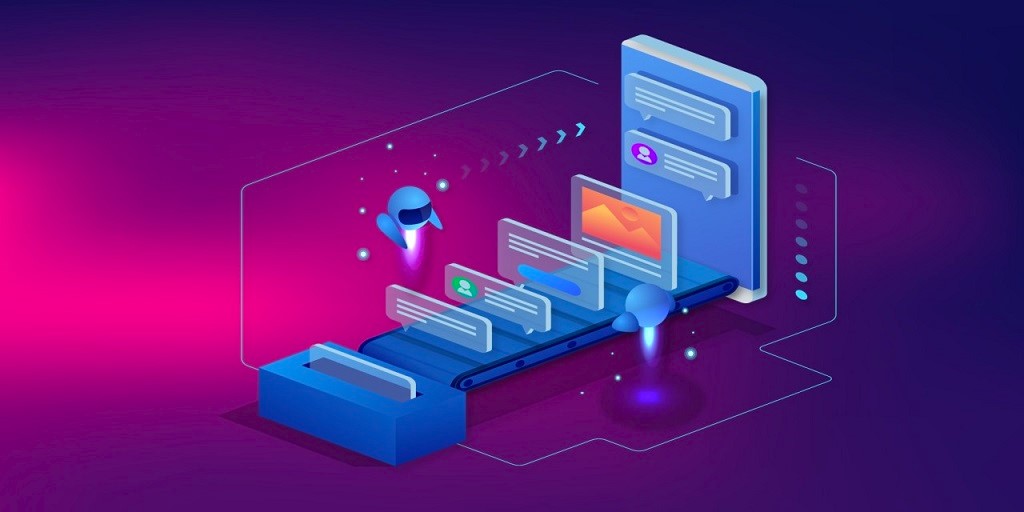Benefits of Generative AI for Business

Generative AI enables businesses to boost human creativity, expedite innovation, enhance operational efficiency, and craft compelling marketing campaigns. It can also reduce risks, automate tasks, and streamline production.
Generative AI capabilities are increasingly built into workplace applications that people use daily. Gartner recommends connecting usage to specific business objectives to avoid LLM hallucinations and negative impact on employees’ work.
Improved Customer Experience
Your team’s productivity can be significantly enhanced by leveraging the benefits of generative AI for business. By automating repetitive tasks and streamlining workflows, your team can free up time to focus on strategic initiatives that have the potential to drive business growth and profitability. It can also help you minimize the number of errors and other costly manual processes that require human intervention, lowering overall costs.
Generative AI can transform customer experience with personalized content, products, and offers. The level of personalization can significantly improve customer satisfaction and loyalty. Moreover, generative AI can be utilized to develop chatbots that can provide real-time responses to customers’ inquiries, saving them the trouble of waiting for a live agent to assist them.
Generative AI for marketing also saves time and effort by automating tasks like data entry, information summarization, and creating content like articles and newsletters. It can also create images, videos, and music that can be used to boost brand awareness and engage audiences.
However, humans must carefully oversee the potential for generative AI tools to create content that violates copyright standards or produces inaccurate, biased, or hallucinatory output. It is especially true if your productive AI tool can generate content that directly affects people, such as a marketing campaign or an image.
Increased Productivity
One of the more apparent benefits of generative AI is that it makes it easier for employees to get their work done. For example, it allows for rapid content creation.
In addition, generative AI tools can help reduce errors in a task. It minimizes the need for editing and rework, freeing employees’ time to focus on other tasks.
For instance, one study found that generative AI helped customer support agents handle 13.8% more inquiries per hour. Another found that generative AI allowed business professionals to write 59% more documents per hour. This increase in productivity can significantly impact a company’s bottom line.
Generative AI also enables organizations to expedite new product development, for instance, by automating certain research activities and generating optimal designs grounded in specific parameters. It helps companies meet project deadlines without sacrificing quality or performance. Similarly, legal teams can use generative AI to speed up researching and drafting contracts, thus cutting legal costs.
Enhanced Decision-Making
Generative AI helps businesses make more informed decisions that align with their customers‘ needs. It can help them stay competitive, reduce risk, and streamline operations. For example, generative AI to craft marketing campaigns can help companies remain relevant and attract more customers. Using generative AI to detect fraud can help companies thwart fraudulent activities and protect their customers’ data.
Generative AI can also speed up the delivery time of projects. Automating repetitive tasks, generating new content, and helping with quality assurance can free up more time for employees to work on projects that require their expertise. Businesses can meet deadlines faster and complete projects with fewer errors.
While generative AI’s potential is excellent, some challenges must be overcome. One of the most significant barriers is ensuring the technology is used correctly and used correctly. It includes setting appropriate guidelines for using generative AI, establishing how to monitor and mitigate its effects on the business, and developing ways to ensure that a company isn’t infringing on intellectual property rights. Moreover, companies must understand how generative AI will affect their workforce, especially concerning occupations and skills. They must develop strategies to prepare for the future of work, including retraining their employees for new roles.
Enhanced Internal Knowledge Management
Whether creating marketing newsletters or generating customer support guides, generative AI can make your team more efficient by reducing the time they spend on manual tasks. It translates into money saved on labor and helps minimize operational costs, such as data entry and information summarization.
Another benefit of generative AI is that it can create customized content for each user. It can do this by analyzing a person’s purchase history or online behavior, determining what products are relevant to them, and delivering custom content accordingly. This level of personalization improves the overall customer experience.
Generative AI is also helpful in delivering personalized knowledge management for internal employees. For example, it can generate answers to questions or a guide to resolving a problem based on previous knowledge articles. It can also provide more personalized search results based on an employee’s needs.
Finally, generative AI can help speed up the innovation process. It can create new products such as less toxic household cleaners, novel flavors, fragrances, or faster and more accurate diagnoses. It can also help identify potential revenue streams more quickly.
Generative AI is a powerful tool for businesses looking to improve customer experience, enhance productivity, and increase decision-making. However, it’s essential to understand the risks involved in using generative AI and how to mitigate them. In addition, companies should have a process in place to define responsible use and ensure the privacy of data used by generative AI.
